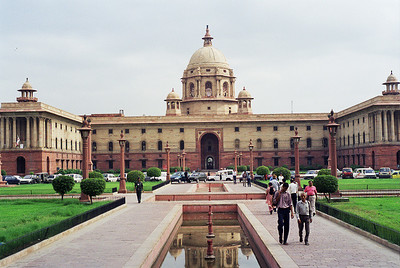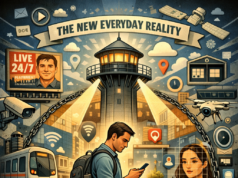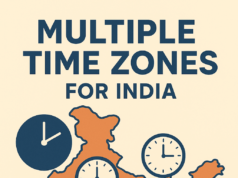The Indian state is the antithesis of what any state should do. It barely provides public goods and is instead overwhelmingly present in provisioning and subsidizing private goods or regulating private interactions.
This extends to everything. Instead of law and order, the government focuses on providing cooking gas subsidies. Instead of enforcing justice for crimes against Dalits, the state absolves itself of responsibility, often by pointing to reservations. Instead of enforcing contracts and having fair rules for all private enterprise, the state is seen to pick cronies as economic winners, granting them subsidies and monopoly privileges. Instead of investing in strengthening public goods and services, the state games electoral politics by giving away private entitlements. As always, religious and caste minorities and women are the worst affected, by the underprovisioning of public goods.
This shift from public goods to unequal private entitlements has been the modus operandi of the bloated and costly Indian state, post-liberalization. It only seems to have strengthened under the Narendra Modi government. Toilets instead of sewage systems, government jobs instead of a functional public education system, loan waivers instead of contract enforcement, free credit instead of well-regulated banking, and farm subsidies instead of farm infrastructure have been the markers of modern India.
Since Adam Smith, classical liberals across the world and centuries have made a passionate case for a night watchman state. This is a government that prevents private predation by maintaining law and order, enforcing contracts, and administering criminal justice, and limits itself to provisioning basic public goods. While this model served the development of the western world in the 19th and early 20th century, one is hard-pressed to find a night watchman state today, as most countries have drifted from this liberal vision.
One type of drift is the planning state that arose in the early 20th century. These economies envisaged that nearly all goods and services, not just public goods, would be produced or controlled by the government. We now know how central planning devastated economies, causing famines that killed millions of people. The political control over individual freedoms, stifling of free speech, use of genocide, etc., by communist regimes are also well known. While there are few takers for central planning today, there is no doubt that some socialist states invested in public goods and infrastructure. Some erstwhile socialist states continue to benefit from those investments, though their citizens paid the price for socialist tyranny.
The other type of drift is that of the liberal democracy with an ever-expanding welfare state, a consequence of the redistributive nature of democratic politics. The highly romanticized modern ideal are the Scandinavian countries, followed by western Europe and to a less extent, the US. These states have also made massive investments in public goods and infrastructure, though their high taxation and redistribution have lost them innovators.
No matter where Indians find inspiration, successful states have demonstrated a strong capacity to deliver on public goods, including law and order, a functional criminal justice system, enforcement of contracts in market economies, strong public health and sanitation systems, and even quasi-public goods like universal primary education. Public goods infrastructure increases private investment and fosters private exchange—the only long-term recipe for growth.
Increasingly, for even the most developed economies, large regulatory state and welfare entitlements that impede innovation have become a problem. With an ageing population and limited immigration, the long-term feasibility of such a state-citizen relationship seems fiscally impossible. The pandemic, prompting large amounts of government stimulus, only makes the problem more immediate.
The Indian approach, even without the economic havoc caused by the pandemic, was unsustainable. The government spends too much on government-provided private goods while largely failing to provide public goods. Spending on private entitlements has two effects. First, the fiscal requirements of the Indian state lead to high deficits and borrowing that crowd out private investment. Second, money spent on public goods provisioning is likely to attract more private investment and private exchange.
The way out is not marginal reforms, but a complete redesign of the state-citizen relationship. The Indian state must turn its approach upside down, exit its provisioning of private goods, and significantly roll back the socialist and regulatory state that is overwhelming and stifling every aspect of private life—whether it is establishing a news channel, a power plant, a small restaurant, or a university. Instead, it should focus only on the provisioning of public goods and developing strong state capacity to deliver these.
This is the solution to many problems—increasing economic growth, expanding private enterprise to accommodate millions of job seekers, signalling to the private sector that the government will not stifle or crowd out business, and signalling to citizens that they are safe from private and state-sanctioned violence.
As India battles a health crisis, an economic slump and a fiscal crisis, it has never been more urgent to redefine the state-citizen relationship.
This article was originally published in Livemint on 12 October 2020
Read more: The Road to Normalcy: India’s Vaccine Policy
Post Disclaimer
The opinions expressed in this essay are those of the authors. They do not purport to reflect the opinions or views of CCS.






